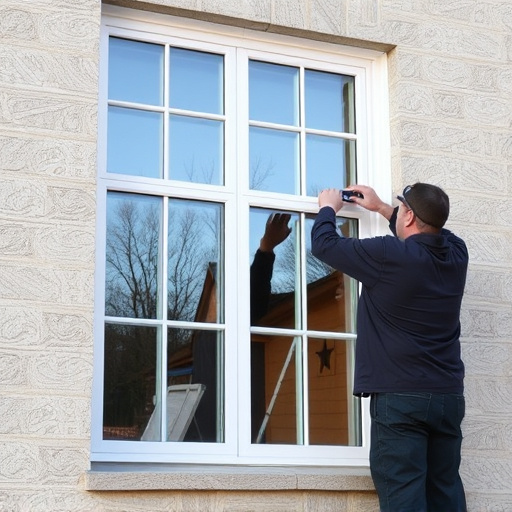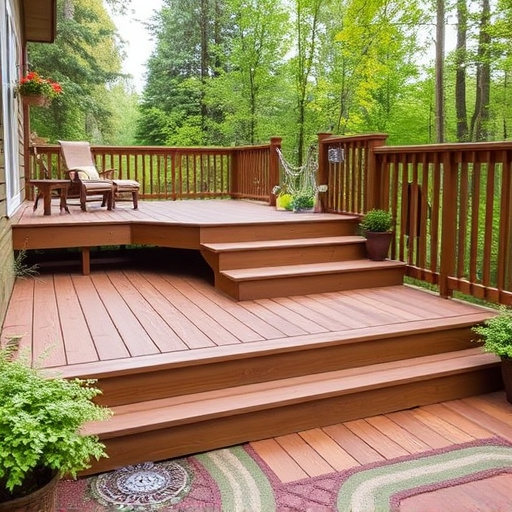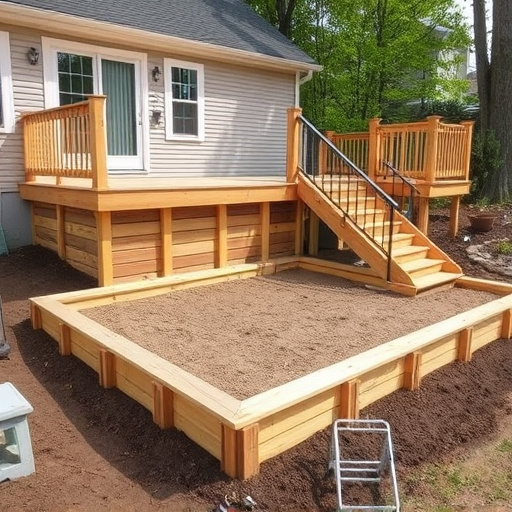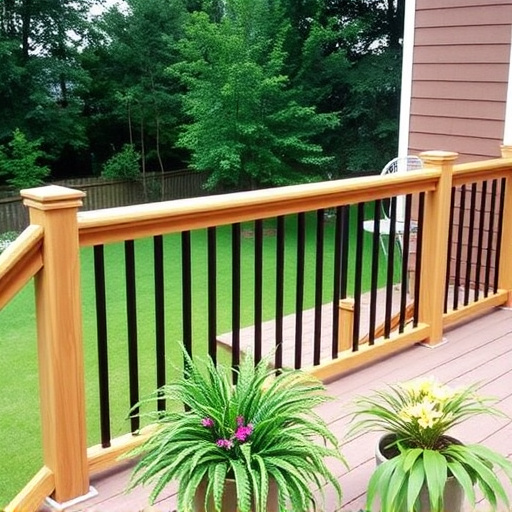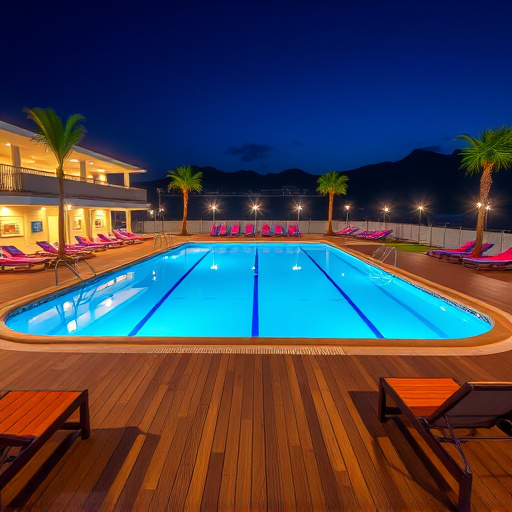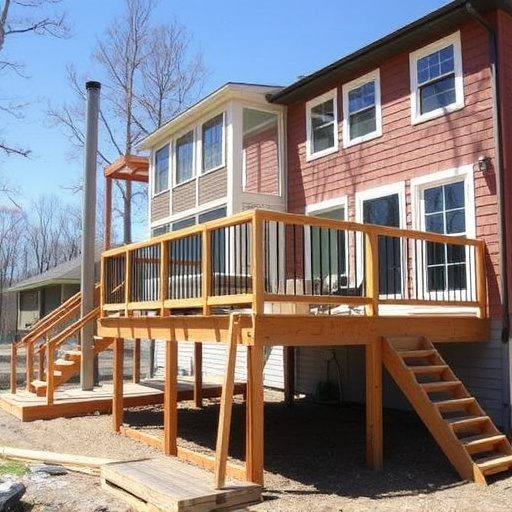When installing deck stairs in coastal areas, choose durable materials like treated wood or composite to resist salty air and storm damage. Proper drainage and well-designed surfaces prevent rot and reduce roof repair needs. For coastal or windy regions, opt for weather-resistant materials, wider treads, robust railings, and low-profile designs to minimize wind risk. Regular maintenance ensures safety and longevity of deck stairs in extreme weather conditions.
Looking to enhance your coastal or windy area deck with functional and stylish stairs? This guide explores innovative deck stair ideas tailored for challenging environments. Discover expert tips on choosing materials that resist salt air and moisture, design considerations for strong winds, and essential safety features for coastal areas. Explore lightweight construction techniques, wind-resistant railing systems, and creative designs that blend form and function seamlessly with your surroundings. Elevate your outdoor space with these inspiring deck stair solutions.
- Choosing Deck Stairs for Coastal Environments
- – Materials that withstand salt air and moisture
- – Design considerations for strong winds and storms
Choosing Deck Stairs for Coastal Environments
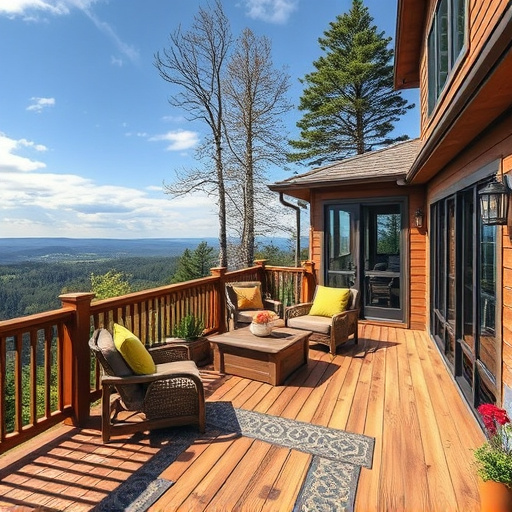
When considering deck stairs for a coastal area, it’s crucial to select materials and designs that can withstand the unique challenges presented by salty air, strong winds, and potential storm damage. Opting for weather-resistant options like treated wood or composite materials is essential to ensure longevity and minimize exterior home improvements costs over time.
Moreover, proper drainage should be a top priority. Stairs with sloped surfaces and well-designed treads help divert water away from the deck, reducing the risk of rot and limiting the need for frequent roof repair. These considerations will contribute to a safe and stable set of stairs that can brave the coastal elements.
– Materials that withstand salt air and moisture
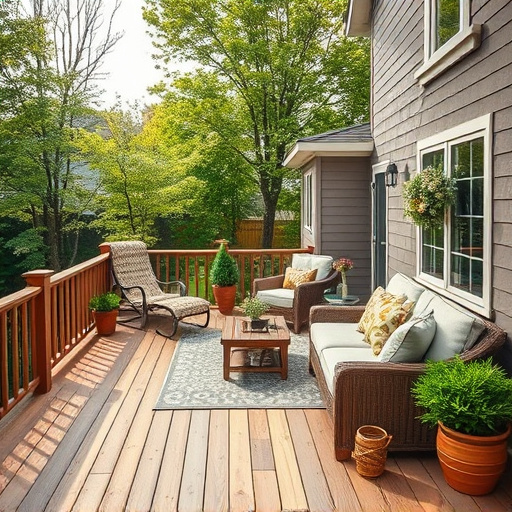
When designing deck stairs for coastal or windy areas, it’s crucial to choose materials that can withstand the constant assault of salt air and moisture. Traditional wood decking may rot or warp over time, making it unsuitable for such environments. Instead, opt for weather-resistant options like treated lumber, composite materials, or vinyl. Treated lumber is impregnated with chemicals that enhance its resistance to decay and insects, while composites are made from a mix of plastic and wood fibers, offering durability and low maintenance. Vinyl decking is another excellent choice, as it’s entirely resistant to rot, mold, and fading, ensuring your deck stairs remain in top condition for years.
For homeowners looking for long-lasting and low-maintenance solutions, consider these materials when embarking on a deck restoration or new construction project. Besides enhancing the aesthetics of your outdoor space, they also provide practical benefits. Moreover, if you’ve experienced storm damage repair or siding repairs in the past due to harsh weather conditions, choosing the right decking materials can prevent future issues, ensuring your investment is protected and your home service solutions are more readily available.
– Design considerations for strong winds and storms
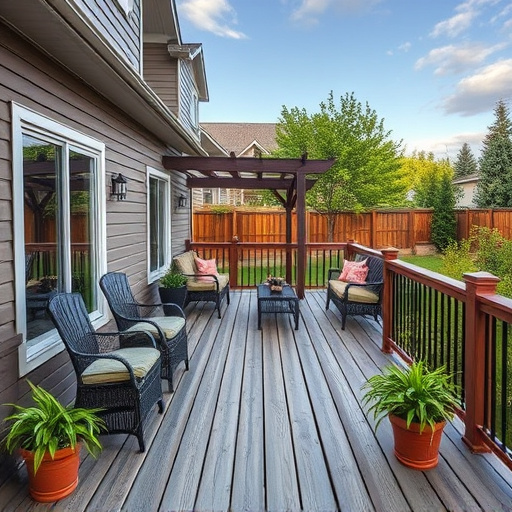
When designing deck stairs for coastal or windy areas, it’s crucial to factor in the region’s unique challenges. Strong winds and storms can pose significant risks, so robust construction is essential. Consider using wider stair treads to prevent slippery conditions from rain or seawater, and ensure the rails are securely fastened with reinforced brackets to withstand high-speed gusts. A low-profile design with sturdy, well-anchored posts can also minimize wind resistance.
For added protection, incorporate storm-resistant materials in both the deck stairs and the surrounding structure. Impact-resistant decking and non-slip surfaces on the steps enhance safety during severe weather. Regularly inspect and maintain these features to ensure they remain in optimal condition, as exterior home improvements like siding installation should also be evaluated for their suitability in such environments, ultimately contributing to a more secure outdoor space.
When it comes to choosing deck stairs for coastal areas, prioritizing durability against salt air and moisture is key. Incorporating robust materials and thoughtful design elements that account for strong winds and storms ensures safety and longevity in these challenging environments. With the right approach, you can enhance your outdoor space with functional and stylish deck stairs tailored to withstand the unique conditions of coastal living.







